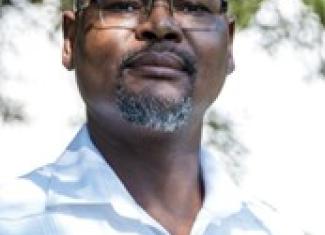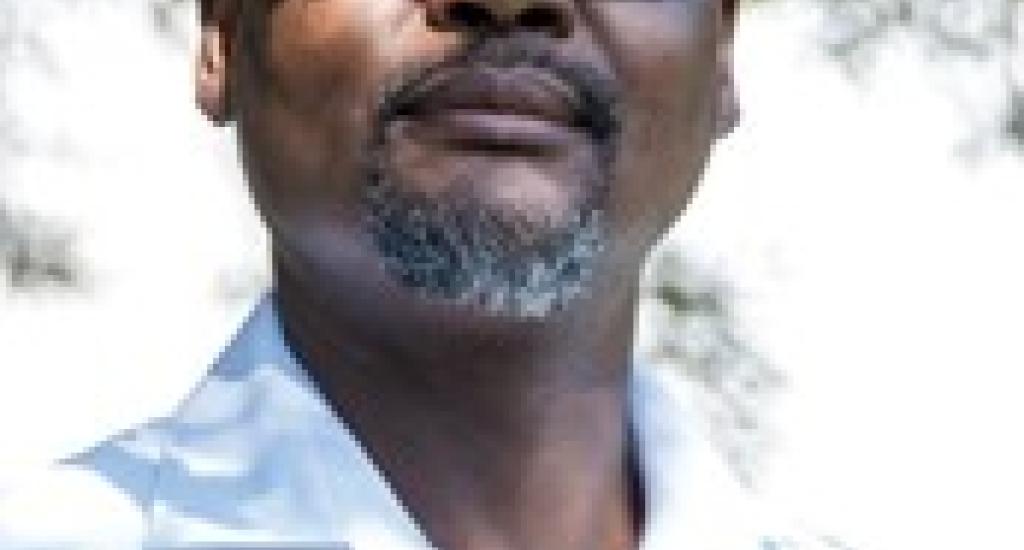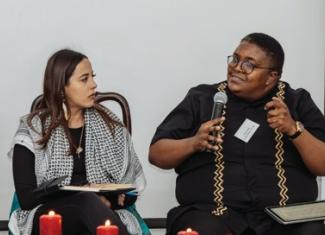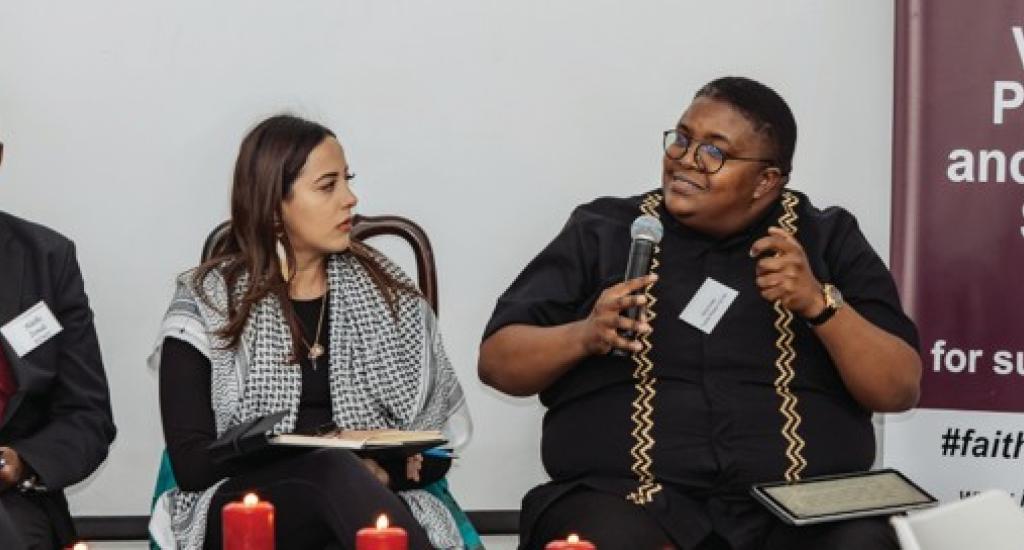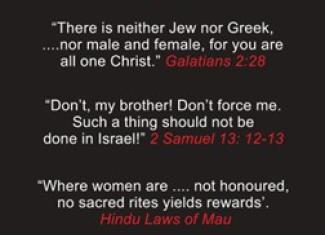The role of government and faith action in ending GBVF
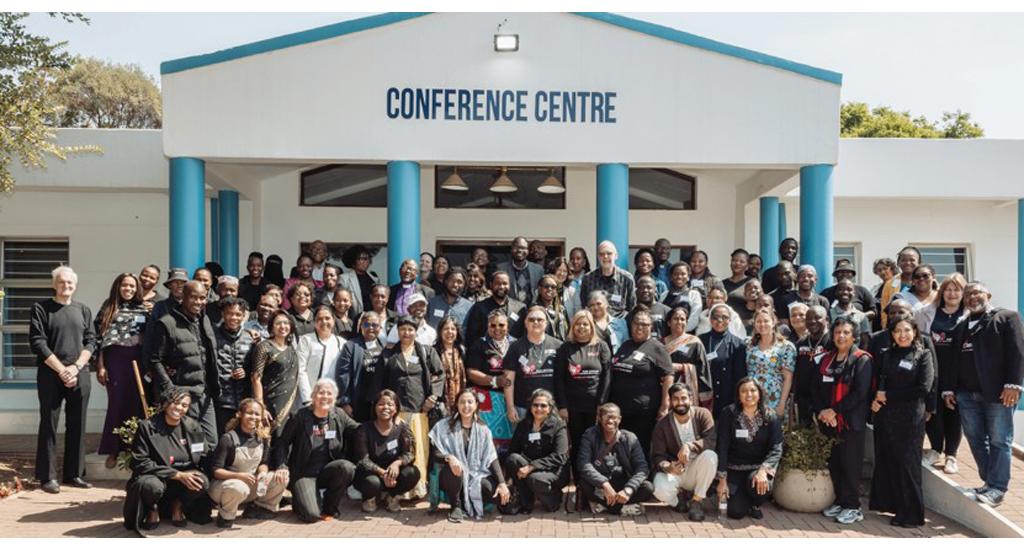
South Africa’s gender-based violence and Femicide (GBVF) crisis is one of the most severe in the world, with rates reported to be “five times higher than the global average,” affecting women, children and members of the LGBTQ+ community in disproportionate numbers.
Every day, stories of sexual abuse and violence unfold, with survivors often trapped in a cycle of silence, shame and fear. However, a glimmer of hope is emerging as government and faith communities rally together in a unified front to address this scourge.
The collaboration between these two sectors is epitomised by the recent launch of the Interfaith Gender-based Violence (GBV) Prevention and Mitigation Strategy 2024 – 2030. This brainchild of the Faith Action to End GBV Collective and We Will Speak Out South
Africa represents a crucial step towards ending GBVF. The strategy is designed to complement government's overarching National Strategic Plan (NSP) on GBVF. As the first sector to craft its comprehensive strategy, the interfaith initiative aims to bolster Pillar 2 of the NSP on GBVF, focusing on prevention and social cohesion. This pillar seeks to address the root causes of GBVF by promoting gender equality, tackling harmful societal norms, and fostering cohesive communities that reject all forms of violence. It also contributes to Pillar 1 (leadership, coordination and accountability) and Pillar 4 (Response and Healing).
Collaboration
The collaboration between the State, entrusted with the duty of care for its citizens through law-making, enforcement and ensuring public safety, and faith communities – entrusted with caring for the wellbeing of all God’s people – is vital. In South Africa, where faith is an integral part of daily life for 80% of the population, religious institutions such as churches, mosques, synagogues, temples and traditional healing centres play a critical role in shaping moral values and societal norms. Historically, however, the faith sector has been slow to address pressing social issues like GBVF, with some religious teachings being misinterpreted to justify violence or uphold patriarchal tendencies.
Nompilo Gcwensa, Chair of the Phephisa Survivors Network, once made a poignant remark, “When you are abused, your spirit is attacked”.
The Interfaith GBVF Strategy calls for faith communities to create safe spaces for survivors. Places of worship are to serve as sanctuaries, offering care, counselling and spiritual healing while holding perpetrators accountable. This shift requires a commitment to addressing spiritual abuse, which occurs when the authority of a religious leader or traditional healer is abused to control or harm others, often justified by distorting sacred teachings.
The new Interfaith GBVF strategy aims to position faith communities at the forefront of the fight against the scourge, encouraging leaders to harness their perceived moral authority for transformative change. Reli- gious leaders are urged to reflect on their roles and confront harm- ful interpretations of sacred texts to create safer, more inclusive spaces that challenge harmful cultural and religious norms that allow GBVF to persist and in- stead promote those norms that promote mutual respect, love, justice and inclusivity.
Speaking at the launch of the strategy, Daniela Gennrich, Coordinator of We Will Speak Out South Africa, described it as a covenant” to end GBVF, calling on faith leaders to hold each other accountable. “No empty promises,” she warned.
“We need to rattle the cage,” she insisted. Gennrich said the spirit of collaboration is essential, as “it encourages faith communities to break free from the silos that have often hindered meaningful partnerships.”
Supporting victims
“Survivors should not have to endure additional trauma when seeking help. The medical and le- gal systems must be equipped to support them rather than subject them to further humiliation,” she stated.
She believes that the normalisation of judgemental attitudes towards survivors of GBVF and patriarchal religious teachings justifying the ‘natural’ headship of men may contribute to the underlying attitudes which influence how service providers treat survivors. This reflects a systemic failure that often prevents survivors from receiving the justice and support they deserve.
Women, Youth and Persons with Disabilities Deputy Minister Mmapaseka Steve Letsike aptly said at the launch, "We need
to roll up our sleeves and work together”. The faith sector has the potential to lead this movement, “using its moral and spiritual authority to transform communities and provide support to the most vulnerable.”
Whole-of-society approach
In her address, Letsike said that ending GBVF “requires a whole-of-society and whole-of- government approach”. While government provides the neces- sary legal frameworks and poli- cies, she added that “civil society and faith communities have the critical mass to move the needle. Religion is one of the first lines of defence women have against discrimination. The collaboration between government and faith-based organisations is a powerful model for how societies can ad- dress GBVF. It demonstrates that change is possible when spiritual and moral authority is combined with political will and community action.”
“The responsibility of combat- ing GBVF does not rest solely with faith leaders. Civil servants, including nurses, doctors, lawyers, magistrates and the National Prosecuting Authority are equally critical”.
Speaking at the same event, Dr Fikile Vilakazi Alberts, Chairperson of the Traditional Health Practitioners Council of South Africa, admitted that historically, traditional healers "could not be trusted" and had at times, “been complicit in violence and creat- ing unsafe spaces”. She called on the sector to confront those involved in the perpetuation of spiritual violence, stressing the importance of “accountability within the traditional healing community.”
In simple terms, this is a call for government officials and faith leaders to recognise how nega- tive religious and cultural as-
sumptions about ‘normal’ gender power relations and gender roles may be preventing us from sup- porting survivors in their healing and quest for justice, as well the creation of a world free of hatred, violence and abuse.
For more information on the Interfaith GBV Strategy 2030 or to join the movement through the Faith Action Collective to End GBV, please contact coordina- tor@wwsosa.org.za, communi- cation@wwsosa.org.za or call 0724537502 or WhatsApp 084
581 0622. ❖
*Mncube is an author and columnist who won the national 2024 Standard Bank Sikuvile Journalism Award for columns/editorials and the same category at the regional 2020 Vodacom Journalist of the Year Awards.



